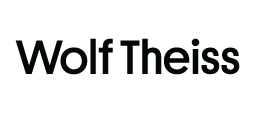The Hungarian Competition Authority has launched the public consultation process about the draft of its updated and amended communication concerning commitment decisions in Hungarian competition cases.
In general, a “commitment decision” is available from the competition watchdog to infringers of competition laws (both antitrust rules and laws prohibiting unfair business-to-consumer practices), who are prepared to offer legally binding commitments in order to remedy the competition concerns the regulatory investigation has identified. Unlike a normal prohibition decision, the acceptance by the Competition Authority (GVH) of a voluntary commitment makes the resulting decision binding on the infringing company without establishing any infringement or pursuing the investigation any further. Another difference is that in a prohibition decision the GVH imposes sanctions on the infringer, whereas a commitment decision essentially rests only on the voluntary commitments offered.
The GVH sees this procedural alternative, which has been available under Hungarian law since 2014, as an effective tool to address competition law concerns via a procedure that allows for a quicker restoration of undistorted conditions of competition on the relevant market than stretching out a full-blown investigation to its end (or even further if the infringer appeals the prohibition decision).
Nonetheless, there has admittedly not been a clear legal path in Hungary for wrongdoers hoping to secure a commitment decision from the GVH against their compromise offer. Therefore, the GVH now proposes to update and substantially amend its former communication in order to fill that procedural gap.
The new communication proposes to define milestones and introduce deadlines for the process and to set explicit requirements in terms of preparing the offered commitments by the infringer and then having them evaluated by the regulator. These are intended to confer increased transparency and predictability on the process. The new communication makes it clear that it remains binding on the GVH only where the infringer follows the preferred procedures.
Wrongdoers are encouraged to proactively indicate their interest in discussing any possible commitment at the earliest possible stage. Unless they do so, the GVH’s preliminary assessment of the case and the resulting draft statement of objections will also mention the GVH’s preparedness to consider commitments from the wrongdoers to the extent the underlying case allows the competition concerns to be effectively addressed by those commitments. A review of Hungarian competition cases shows that one fourth of infringers in antitrust cases and half of all infringers in unfair business-to-consumer practices cases had a genuine willingness to propose commitments even at the outset of their cases.
One of the most important new features of the draft new communication is that it introduces a well-defined set of six criteria the proposed commitment package needs to comply with in order to open the door for further alignment with the GVH. In particular, the GVH expects that the commitments infringers offer be relevant, credible (i.e., raise no concerns regarding their implementation), timely (i.e., can take effect soon after the GVH’s decision and extend for a period sufficient to remedy the problem), unambiguous, accountable (i.e., a subsequent inspection of compliance will be reasonably possible for the GVH), and fit for putting out for market testing (i.e., not so dominated by business secrets and other confidential details that the GVH would be unable to make them available to third parties).
Although it remains in the GVH’s discretion to assess whether the commitments offered are appropriate and sufficient to address its competition concerns, the explicit listing of these criteria in the new communication significantly increases the transparency and predictability of the GVH’s decisions.
Otherwise the new communication leaves infringers completely free to offer commitments that are “behavioral” (i.e., a commitment by the infringer to actively do something on the market, such as provide certain services or goods under specified conditions, or refrain from certain former practices) and/or “structural” (e.g., a commitment to divest certain assets to other market players).
The new communication makes it apparent, however, that commitment decisions are not appropriate for severe infringements of competition law (e.g., secret cartels), which the GVH prefers to investigate in full and where sanctions are considered necessary.
Once the new communication has been finally adopted by the GVH the expectation is that it will further increase the recognition of commitment decisions in Hungary and hence contribute to more efficient investigations by the GVH.
By Janos Toth, Partner, Wolf Theiss Budapest
This Article was originally published in Issue 5.9 of the CEE Legal Matters Magazine. If you would like to receive a hard copy of the magazine, you can subscribe here.


